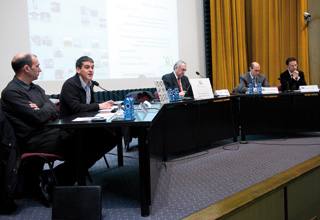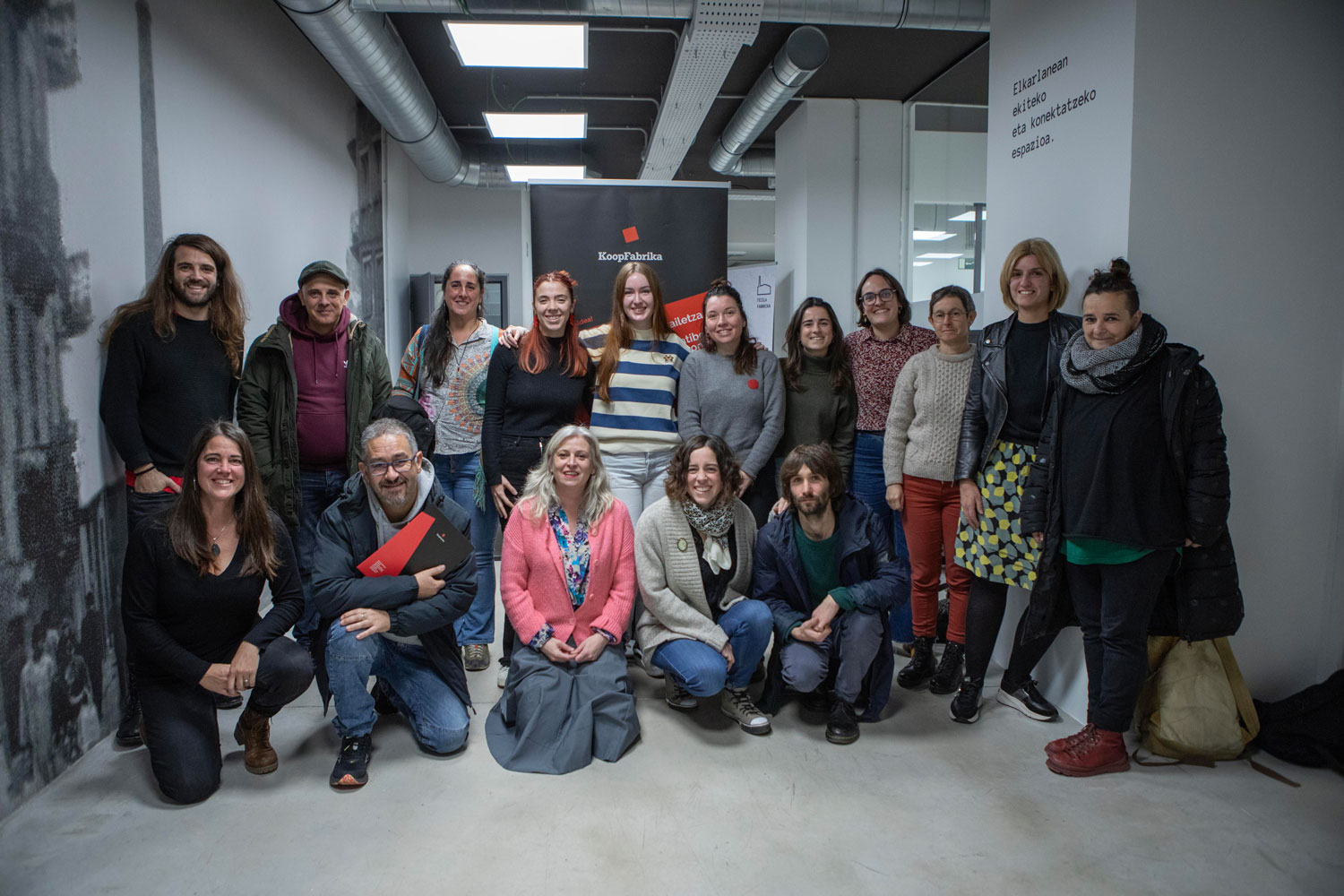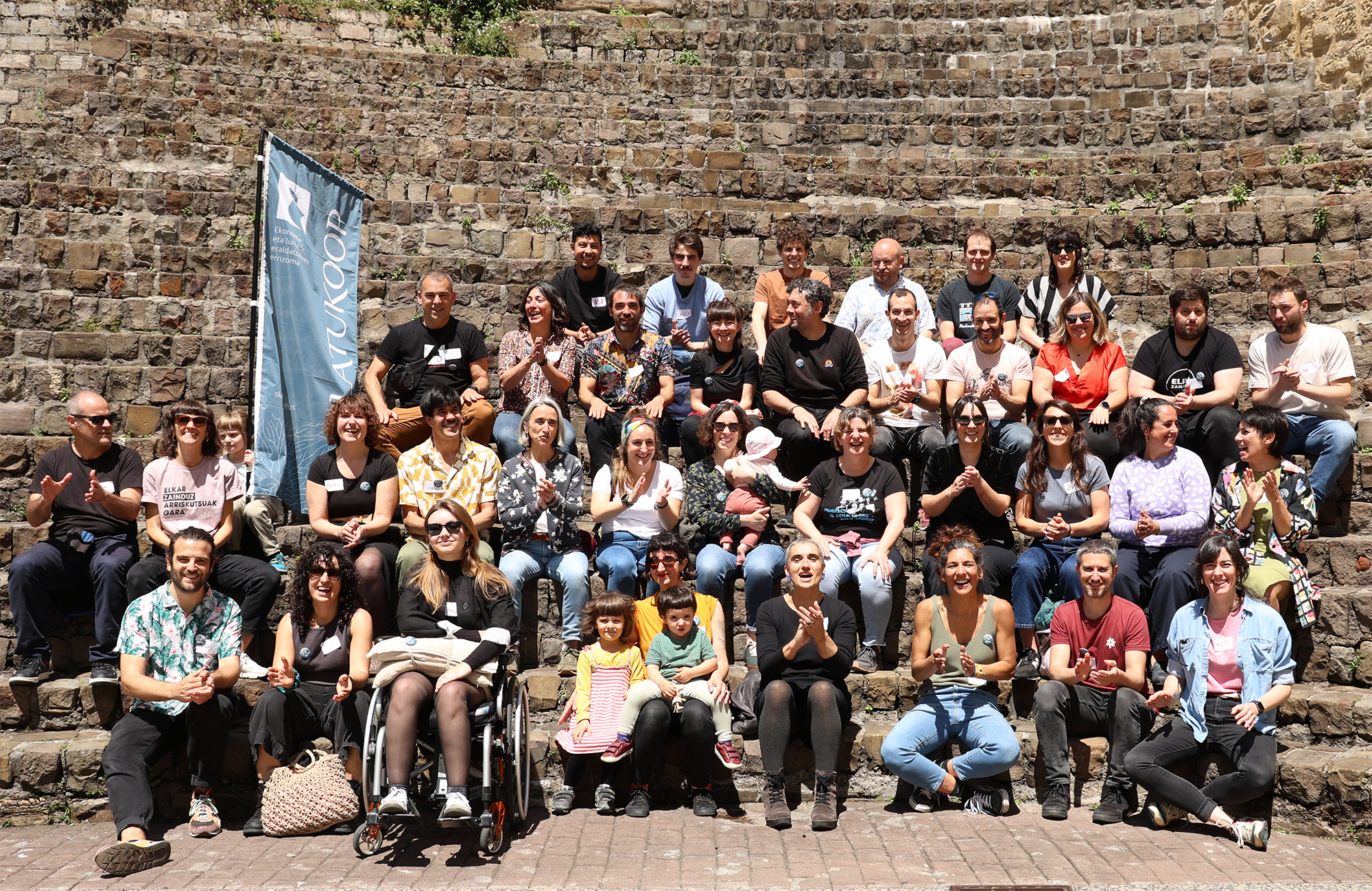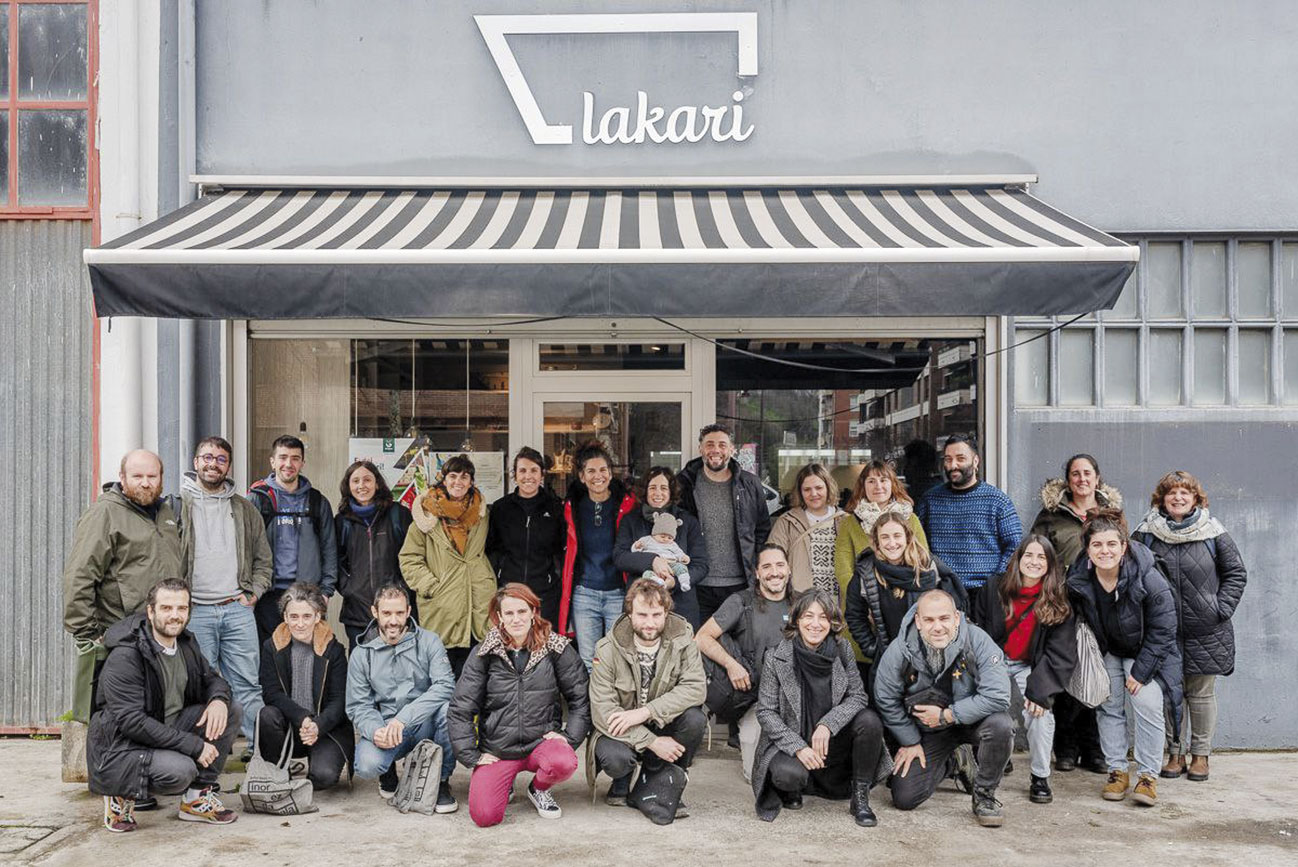One border... two realities?
- The president of the Guipuzcoan businessmen has publicly admitted that he does not know the economic fabric of the Northern Basque Country. What should we think? What is wrong with economic operators on both sides of the border having this mutual ignorance?

How is the socio-economic situation in the Basque Country today?
By Eduardo Zubiaurre: With the crisis in 2009 there was a significant drop in economic activity, around 25% in the industry, which has led to distress and various gross situations in companies. In the meantime, unemployment has risen. We are seeing that previously competitive territories and companies have faced the situation better and that where this competitiveness did not exist, the crisis has made the environment worse. We need to face our challenges more urgently: we need to improve competitiveness, internationalisation, innovation and labour relations if we want to emerge strong from this crisis.
Pictures of Michel Etchebest: In France, another way of dealing with the crisis has been taken, the State has said that “I will pay and the factories will be alive”. The business had fallen by 30 per cent and some factories had suffered greatly, but there had generally been employment in the factories because the Government had decided to pay for it. I believe that this is an escape and that it does not provide a direct or healthy path. The north lives on crops and services, the whole coast is turned to tourism. In Zubero, on the other hand, we have an industry, not a big one, but there are about 40 factories. How do we live this crisis? The factories that are the most healthy are those that work in R&D and have their own products, those that are subcontractors have suffered, because what does not appear clearly in this crisis, but what will appear is that the work will be escaped to the east, to China-or, in which we cannot lead.
Assisted by Mikel Navarro: I see two main variables: real estate and finance. The first one doesn’t bother me so much because it’s a matter of digesting the current stock, but the second one does. We have reached a certain consensus to change the rules of the system and in the end it seems that we are reaching a situation to maintain the status quo and not change the centers of power, which will mean a great mortgage for the future.
However, there are other major changes that need to be considered. For example, the evolution of demographics will have inexorable effects on the economy; and in terms of technology, the regions that have been able to govern themselves have had advantages, because competitiveness is in the “micro” plane, and the small factories that make up our business network have been able to develop innovation. In this sense, the administrative and institutional diversity of the Basque Country could also be an advantage to deepen new forms of governance, such as: public-private collaboration. On the other hand, there is a mistaken view of globalization, because in the world economy, industry and exploitative clusters are becoming less important and services more important, but they depend on the local market. In the field of knowledge, I believe that there is too much positive opinion about the level of education of young people, we must not only look at knowledge, but also at values and attitudes, and there is a great crisis there. On top of that, we've got a huge endogamy that we're gonna have to overcome. And to conclude, we still have an irreparable contradiction with the environment, because obviously the growth that we have experienced so far is not sustainable.
Take on the global with small things. What role can the Basque Country play there?
I'm talking about E.Z. : We need to build on our strengths. There are some tractor, automotive, machinery sectors... But there are also other sectors that can be developed in the future: mobility, energy, ICT... If we take the right steps, we can have a way out of it in the future.
And could there be complementarity between the South and the North?
I'm talking about E.Z. : Personally I don’t know much about the North, but as Michel has mentioned, everyone will need a different strategy. The realities we have are different.
About the M.E: In territorial organization, the South has been able to make decisions for 30 years, especially in the economy. In the north we don’t live in the Berber world. I say that if a factory wants to come to Aquitaine, it will first have to pass through Paris. This is how our country is organized, the policy changes, but the administration does not. The decentralization was hardly initiated by Minister Pierre Mauroy Mitterranden, but in the last two or three years we are seeing how all the power is re-establishing Paris. What are we gonna do? We have no other way than to do it ourselves. In France there are large factories such as Airbus, EDF and these are the ones supported. And then there are small factories like ours. We [Pastors in the group] are seven companies and the largest has 50 employees, we are very small, there are no intermediaries. In the south there are factories of 300 to 400 workers and they can be spread all over the world. I do not see a future in the North if such a network of intermediate plants is not created. What to do with the South? The partnership. We’ve been working hard for twenty years; we started a workshop with an actress from the South... Then we separated ourselves by different strategies. They were from Euskadi, we are a French factory. The challenge for us is how to work together.
In the M.N. : I am a pessimist. The vision of territoriality in the South itself is lacking. We have three fully interconnected capitals, but with overlapping plans and no synergy projects. For example, the Guggenheim could have reached an agreement with Atapuerca, but there is no vision for it, and we remain completely local. If we have this localism in the South itself, I find it very difficult to overcome it with a state border; the North brings almost nothing to the companies of the South, and it creates many difficulties, in terms of employment contracts, etc. For this, it is better to go to countries like China.
Do organizations such as Biarte, created by the Chambers of Commerce of Bayonne and San Sebastián, serve this purpose?
In the M.N. : I don’t know him because he hasn’t had enough influence since then. It could be a positive initiative and all that is done along this path is chapeau, but I do not see too much progress in this regard.
I'm talking about E.Z. : This initiative aims to increase the commercial relationship. But I see very little movement, we are talking about two very different economic areas and if we do not increase the areas of interest it will be very difficult. As far as I know, this initiative is more about the effort to access the French market through the Bayonne Association.
Does it seem that there is no complementarity... even between sectors?
In the M.N. : For example, the aeronautical sector has undergone some development here, it is a sector that could be of interest... but Northern aeronautics is rising to the north.
According to the M.E. : It is true that there are great differences between the South and the North: in the power of decision, as an economic force... But we have another limitation: not knowing each other. I hope that the work that Gaindegia has begun will continue for a long time, as we will find ways to cooperate. There are a few factories that have come from the South to the North, and that is how they enter the French market. If Donapaleun is a plant from Amurrio with 70 employees, it makes infrastructures for the railways, it had no other way than to enter the SNCF... In the end, it is an industrial establishment, and the industry has come to us. This is the work carried out by the Shepherd, we believe that the industry is what all the others will be: crowding, services... Here I have heard that production does not weigh gehiegirik.Nik I do not know if it is possible to live without industry, right? It would be an interesting exercise, because if you see that you can live, you will go to another social model.
In the M.N. : I did not want to say that industry is not key, I was talking about globalization, and although it is becoming less and less important, industry is indispensable because it drags the rest of the sectors. However, the example of implementation to which you referred is set by a decision of the Administration, because France has decided that it must be produced there. To be honest, from an economic point of view there are very few reasons that would encourage the establishment of a Southern company in the North.
Euskal Herriko errealitate sozioekonomikoa ezagutu eta etorkizuneko erronkez jakiteko material ezinbestekoa jarri du Gaindegiak irakurleen eskuetan. Xabier Isasi erakunde horren lehendakariak dioenez “gure lurraldeek elkarren beharra dute” eta haien arteko “kohesioa” bultzatu behar da. Kohesio horren atariko gisa aurkeztu du Gaindegiak honako liburua, egungo testuinguru globalarekin nola uztartu hausnartzeko.
Budgets and the closure of annual accounts are nothing more at this time, from the domestic economy to most of the socio-economic spaces that we share. Large companies have begun to extract calculators and implement major plans for 2025. Small and medium-sized institutions and... [+]
I write these lines the day after the elections to the European Parliament, the dark times, the triumph of the Reactionary International in the elections to the European Parliament. It was already in advance and it is the confirmation of the conservative phase we live in, but it... [+]























